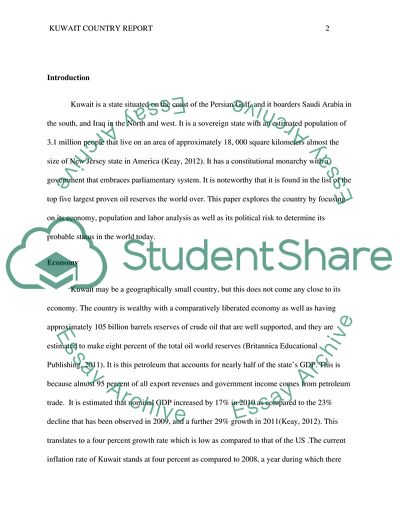Cite this document
(Kuwait's Status in the World Today Term Paper Example | Topics and Well Written Essays - 1786 words, n.d.)
Kuwait's Status in the World Today Term Paper Example | Topics and Well Written Essays - 1786 words. Retrieved from https://studentshare.org/geography/1772745-country-report-kuwait
Kuwait's Status in the World Today Term Paper Example | Topics and Well Written Essays - 1786 words. Retrieved from https://studentshare.org/geography/1772745-country-report-kuwait
(Kuwait'S Status in the World Today Term Paper Example | Topics and Well Written Essays - 1786 Words)
Kuwait'S Status in the World Today Term Paper Example | Topics and Well Written Essays - 1786 Words. https://studentshare.org/geography/1772745-country-report-kuwait.
Kuwait'S Status in the World Today Term Paper Example | Topics and Well Written Essays - 1786 Words. https://studentshare.org/geography/1772745-country-report-kuwait.
“Kuwait'S Status in the World Today Term Paper Example | Topics and Well Written Essays - 1786 Words”, n.d. https://studentshare.org/geography/1772745-country-report-kuwait.


